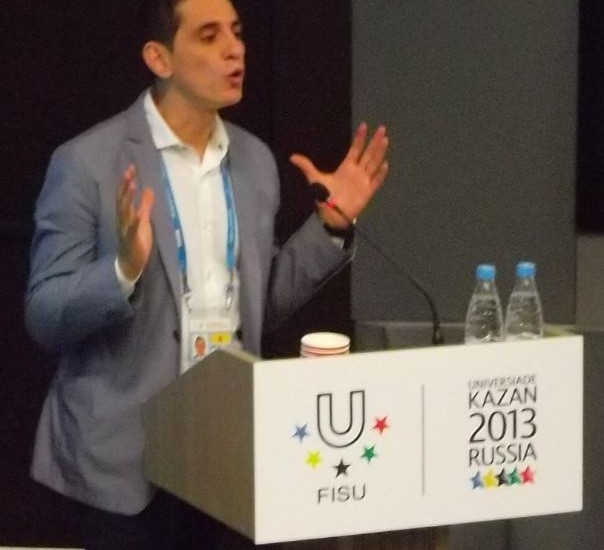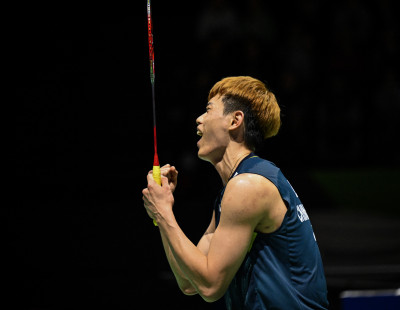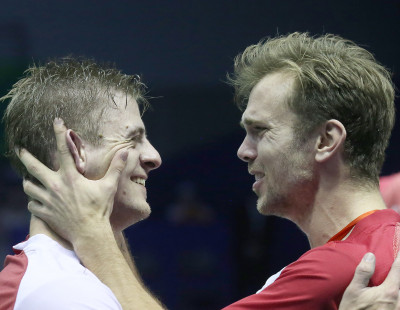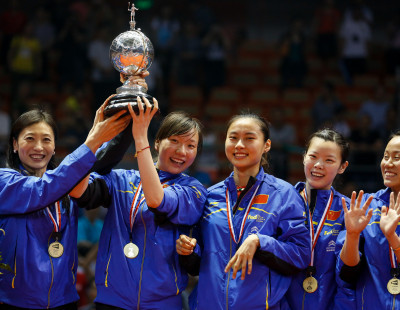The science of badminton has been in sharp focus lately with the offer of research grants from the Badminton World Federation and a conference at the recent Summer Universiade highlighting scientific developments in badminton.
While BWF is putting its money behind individuals or institutions interested in researching sports-science projects related to badminton, research is already well  underway in places like Russia where a study called “Eye Disease Treatment Through Badminton” demonstrated the beneficial effect of badminton on children’s eyesight. Many children stopped wearing glasses in two month after taking special badminton lessons three times a week.
underway in places like Russia where a study called “Eye Disease Treatment Through Badminton” demonstrated the beneficial effect of badminton on children’s eyesight. Many children stopped wearing glasses in two month after taking special badminton lessons three times a week.
This revelation was made by Chairman of the Russian Badminton Federation, Andrey Andropov, at the 25th FISU (French acronym: International University Sports Federation) Conference which took place in Kazan, Russia, last week as the 27th Summer Universiade drew to a close.
The four-day meeting brought together persons from more than a hundred countries and 250 universities to discuss a variety of topics, including “Traditional and Innovative Technologies in University and Olympic sport” and “Leading a Healthy Lifestyle: How Can University and Olympic Sport Contribute?”
Executive Committee member of FISU and BWF Chair of Development, David Cabello (BWF home page), also contributed to the research forum in a presentation with Bastian Kruse (badminton technical delegate from the European University Sport Association) entitled “Universiade as Experience on the Olympic Pathway”.
Citing research and case studies, their report stated the level of the badminton tournament – in terms of a higher number of participating nations and a rise in top-20-ranked players competing – has improved significantly from badminton’s first appearance in a Summer Universiade in Bangkok 2007.
“It is a very positive step in our quest to get badminton’s status upgraded to that of a compulsory sport in future Universiades,” noted Cabello.
Meanwhile, the BWF Sports Science Commission will soon award US$40,000 in research grants to persons and/or institutions for sports-science projects related to badminton. The world-governing organisation hopes this initiative will raise awareness of badminton as an area of study and to encourage greater investment in research in the sport by universities. BWF is seeking to build knowledge of badminton in the following areas:
- Physiology
- Biomechanics
- Sports psychology
- Performance analysis
- Match analysis
- Sports Nutrition
- Sports Anthropometry
- Sports injuries/injury prevention
Prospective awardees will be judged on the following criteria: relevance; outcomes; originality; quality; mechanistic insight and immediate impact. Applicants for the 2013-2014 grants will be notified in late August if they have been successful.
The Commission is mandated (1) to encourage and widen interest and investment in applied research in badminton; (2) to improve the level and quantity of scientific material available to players, coaches and badminton practitioners and (3) to contribute towards the increased knowledge of performance and safety at the international level (of coaches and players).
Text by Gayle Alleyne | BWF






























